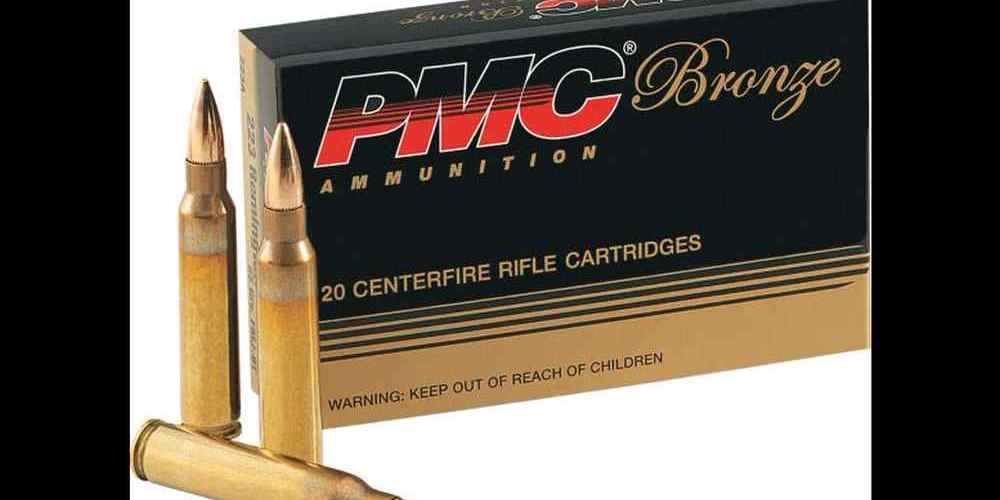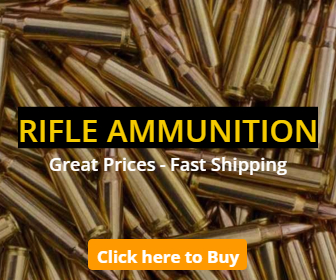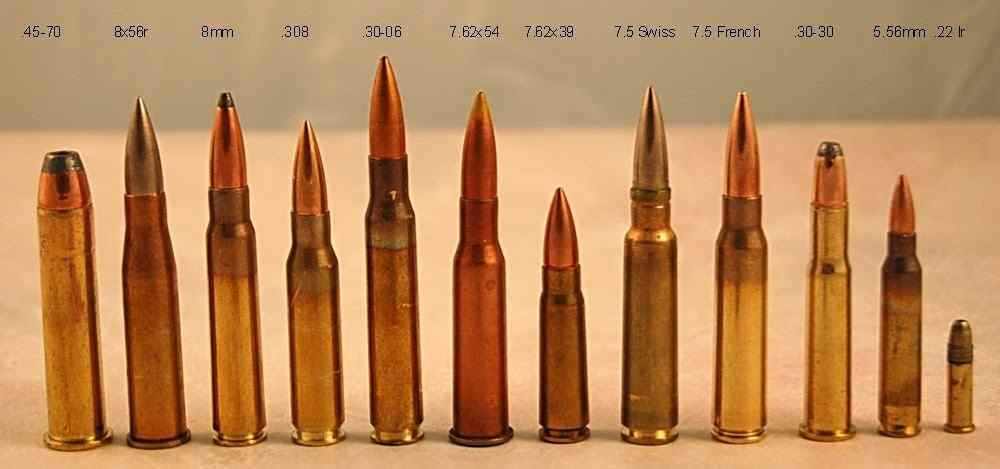Unleash the power of AR15 ammo with expert knowledge on barrier penetration.
Types of AR15 Ammo for Barrier Penetration
When it comes to choosing the right ammunition for your AR15, understanding barrier penetration is crucial. Whether you are a seasoned shooter or a beginner, knowing how different types of ammo perform against various barriers can make a significant difference in your shooting experience. In this article, we will delve into the world of AR15 ammo and barrier penetration to help you make informed decisions when selecting the right ammunition for your needs.
One of the most important factors to consider when choosing AR15 ammo for barrier penetration is the type of bullet construction. Full metal jacket (FMJ) bullets are commonly used for target shooting and training purposes. These bullets have a lead core encased in a copper jacket, which helps them maintain their shape and penetrate barriers more effectively. However, FMJ bullets may not expand upon impact, which can limit their effectiveness in self-defense situations.
On the other hand, hollow point bullets are designed to expand upon impact, creating a larger wound cavity and transferring more energy to the target. This makes them ideal for self-defense scenarios where stopping power is essential. However, hollow point bullets may not penetrate barriers as effectively as FMJ bullets, making them less suitable for shooting through obstacles.
Another factor to consider when selecting AR15 ammo for barrier penetration is the bullet weight. Heavier bullets typically have more momentum and are better able to penetrate barriers than lighter bullets. However, heavier bullets may also have more recoil, which can affect your accuracy and shooting performance. It is essential to find a balance between bullet weight and recoil to ensure optimal performance in different shooting scenarios.
In addition to bullet construction and weight, the velocity of the bullet also plays a significant role in barrier penetration. Higher velocity bullets tend to penetrate barriers more effectively than lower velocity bullets. However, high-velocity bullets may also fragment upon impact, reducing their effectiveness in certain situations. It is essential to consider the trade-offs between velocity and penetration when selecting AR15 ammo for barrier penetration.
When shooting through barriers, it is essential to consider the type of material you are shooting through. Different barriers, such as drywall, plywood, or car doors, will affect the performance of your ammunition differently. For example, FMJ bullets may perform well against soft barriers like drywall but may struggle to penetrate harder barriers like car doors. Hollow point bullets, on the other hand, may expand upon impact and lose their penetration power when shooting through barriers.
In conclusion, understanding barrier penetration is essential when selecting AR15 ammo for different shooting scenarios. By considering factors such as bullet construction, weight, velocity, and the type of barrier you are shooting through, you can make informed decisions that will enhance your shooting experience. Whether you are shooting for target practice, self-defense, or hunting, choosing the right ammunition for barrier penetration can make all the difference in your shooting performance.
Factors Affecting Penetration Power in AR15 Ammo
When it comes to understanding the penetration power of AR15 ammo and its ability to penetrate barriers, there are several factors that come into play. From the type of ammunition being used to the construction of the barrier itself, each element can have a significant impact on the overall penetration power of the round. By understanding these factors, shooters can make more informed decisions about the type of ammo they use and how it will perform in different scenarios.

One of the most important factors affecting penetration power is the type of ammunition being used. Different types of AR15 ammo are designed for different purposes, whether it be target shooting, hunting, or self-defense. For example, full metal jacket (FMJ) rounds are designed for target shooting and have a higher penetration power compared to hollow point rounds, which are designed to expand upon impact and cause more damage to the target. When considering penetration power, shooters should take into account the intended use of the ammunition and choose accordingly.
Another factor that can affect penetration power is the construction of the barrier being penetrated. Different barriers, such as walls, doors, or car doors, have varying levels of thickness and material composition, which can impact how well a round is able to penetrate through them. For example, a round that is able to easily penetrate through a thin sheet of drywall may struggle to penetrate through a solid steel door. Shooters should consider the type of barriers they may encounter in different scenarios and choose ammunition that is capable of penetrating through them effectively.
In addition to the type of ammunition and barrier being penetrated, the velocity and energy of the round also play a significant role in penetration power. Rounds that are fired at higher velocities and have more energy behind them are more likely to penetrate through barriers compared to rounds that are fired at lower velocities. Shooters should consider the velocity and energy of the rounds they are using and how it will impact their ability to penetrate through different barriers.
It is also important to consider the angle at which the round impacts the barrier, as this can affect its ability to penetrate through it. Rounds that impact barriers at a perpendicular angle are more likely to penetrate through them compared to rounds that impact at an oblique angle. Shooters should be mindful of their shooting angles and how it may impact the penetration power of their rounds.
Overall, understanding the factors that affect penetration power in AR15 ammo is crucial for shooters looking to make informed decisions about their ammunition choices. By considering the type of ammunition being used, the construction of the barrier being penetrated, the velocity and energy of the round, and the angle of impact, shooters can better predict how their rounds will perform in different scenarios. By taking these factors into account, shooters can ensure that they are using the most effective ammunition for their intended purpose and maximize their penetration power when it matters most.
Comparing Penetration Power of Different AR15 Ammo Brands
When it comes to choosing the right ammunition for your AR15, understanding the penetration power of different brands is crucial. The ability of a bullet to penetrate barriers can greatly impact its effectiveness in various shooting scenarios. In this article, we will delve into the importance of penetration power and compare the performance of different AR15 ammo brands.
Penetration power refers to the ability of a bullet to penetrate through barriers such as walls, glass, and other obstacles. This is an important factor to consider when selecting ammunition for self-defense or tactical purposes. A bullet with high penetration power can effectively neutralize threats even when they are hiding behind cover.
One of the key factors that determine penetration power is the design of the bullet itself. Full metal jacket (FMJ) bullets are known for their ability to penetrate barriers due to their hard outer casing. On the other hand, hollow point bullets are designed to expand upon impact, which can reduce their penetration power. When choosing ammunition for your AR15, it is important to consider the intended use and select a bullet design that aligns with your needs.
In addition to bullet design, the weight and velocity of the bullet also play a significant role in penetration power. Heavier bullets tend to have higher penetration power as they carry more momentum upon impact. Similarly, bullets with higher velocities can penetrate barriers more effectively due to their increased kinetic energy. When comparing different AR15 ammo brands, it is important to consider these factors and choose ammunition that offers the right balance of weight and velocity for your specific needs.
When it comes to comparing penetration power of different AR15 ammo brands, there are several factors to consider. One of the most popular brands known for its penetration power is Federal Premium Ammunition. Their Tactical Bonded line of ammunition is specifically designed for law enforcement and military use, offering superior barrier penetration and terminal performance.
Another brand that is highly regarded for its penetration power is Hornady. Their Critical Duty line of ammunition is engineered to provide consistent and reliable performance through barriers, making it an excellent choice for self-defense and tactical applications. With a reputation for quality and reliability, Hornady ammunition is a top choice for many AR15 owners.
In contrast, some brands may prioritize other factors such as accuracy or expansion over penetration power. While these attributes are important in their own right, it is essential to consider the specific requirements of your shooting scenarios and select ammunition that offers the right balance of performance characteristics.
In conclusion, understanding the penetration power of different AR15 ammo brands is essential for making an informed decision when selecting ammunition for your rifle. By considering factors such as bullet design, weight, velocity, and brand reputation, you can choose ammunition that offers the right balance of penetration power for your specific needs. Whether you are looking for self-defense, hunting, or tactical applications, selecting the right ammunition can make all the difference in achieving your shooting goals.
Importance of Barrier Penetration in Self-Defense Situations
When it comes to self-defense situations, understanding the penetration power of your AR15 ammo is crucial. The ability of your ammunition to penetrate barriers can mean the difference between life and death in a dangerous situation. In this article, we will explore the importance of barrier penetration in self-defense scenarios and how you can choose the right ammo for your AR15.
Barrier penetration refers to the ability of a bullet to pass through obstacles such as walls, doors, or windows. In a self-defense situation, you may need to shoot through barriers to reach your target. This could be necessary if an intruder is hiding behind a door or if you need to defend yourself from a distance. Understanding the penetration power of your ammo is essential for making informed decisions in high-stress situations.
When selecting ammo for your AR15, it is important to consider the type of barriers you may encounter in a self-defense scenario. Different types of ammo have varying levels of penetration power, so it is crucial to choose the right ammunition for your needs. For example, hollow point bullets are designed to expand upon impact, making them less likely to over-penetrate and cause collateral damage. On the other hand, full metal jacket bullets are more likely to penetrate barriers but may not expand as effectively upon impact.
In addition to considering the type of ammo, it is also important to understand the ballistics of your chosen ammunition. Ballistics refers to the behavior of a bullet in flight and upon impact. Factors such as bullet weight, velocity, and design can all affect the penetration power of your ammo. For example, heavier bullets tend to penetrate barriers more effectively than lighter bullets, while higher velocity rounds may have greater penetration power.
In self-defense situations, it is important to strike a balance between penetration power and the risk of over-penetration. Over-penetration occurs when a bullet passes through a target and continues to travel, potentially causing harm to unintended targets. This is a significant concern in residential areas or other crowded environments where bystanders may be present. Choosing the right ammo for your AR15 can help minimize the risk of over-penetration while still providing effective barrier penetration.
To ensure that you are prepared for any self-defense scenario, it is essential to practice with your chosen ammunition. Familiarize yourself with the ballistics of your ammo and test its penetration power on different barriers. This will help you understand how your ammunition performs in real-world situations and make informed decisions when faced with a threat.
In conclusion, understanding the penetration power of your AR15 ammo is crucial for effective self-defense. By choosing the right ammunition and practicing with it regularly, you can ensure that you are prepared to handle any situation that may arise. Remember to strike a balance between penetration power and the risk of over-penetration, and always prioritize safety in all your shooting activities. Stay safe and stay informed when it comes to barrier penetration in self-defense scenarios.
Tips for Improving Penetration Power with AR15 Ammo
When it comes to using an AR15 rifle, understanding the penetration power of your ammunition is crucial. Whether you are a seasoned shooter or a beginner, knowing how different types of ammo perform against various barriers can make a significant difference in your shooting accuracy and effectiveness. In this article, we will delve into the world of AR15 ammo and barrier penetration, providing you with tips on how to improve your penetration power.
One of the key factors that determine the penetration power of AR15 ammo is the type of bullet used. Full metal jacket (FMJ) bullets are commonly used in AR15 rifles due to their ability to penetrate barriers effectively. These bullets are jacketed with a harder metal, such as copper or steel, which helps them maintain their shape and momentum when hitting a target. FMJ bullets are ideal for shooting through barriers such as walls, doors, and car bodies, making them a popular choice for law enforcement and military applications.
Another factor that affects penetration power is the weight and velocity of the bullet. Heavier bullets tend to penetrate barriers better than lighter ones, as they have more mass and momentum behind them. Additionally, bullets traveling at higher velocities are more likely to penetrate barriers due to their increased kinetic energy. When selecting AR15 ammo for improved penetration power, consider choosing heavier bullets with higher velocities for optimal performance.
In addition to bullet type and weight, the construction of the barrier being penetrated also plays a significant role in penetration power. Different barriers, such as drywall, plywood, and steel, require different types of ammunition for effective penetration. For example, FMJ bullets are suitable for penetrating soft barriers like drywall and plywood, while armor-piercing (AP) bullets are designed to penetrate hard barriers like steel.
To improve penetration power with AR15 ammo, consider using specialized ammunition designed for barrier penetration. Hollow point (HP) bullets are designed to expand upon impact, creating a larger wound cavity and increasing the likelihood of hitting vital organs. While HP bullets are not typically used for barrier penetration, they can be effective against soft targets such as flesh and bone.
When shooting through barriers with AR15 ammo, it is essential to consider the angle of impact. Shooting at a perpendicular angle to the barrier will maximize penetration power, as the bullet will have the most surface area to penetrate. Avoid shooting at oblique angles, as this can reduce the effectiveness of the bullet and increase the risk of deflection.
In conclusion, understanding the penetration power of AR15 ammo and barrier penetration is essential for improving shooting accuracy and effectiveness. By selecting the right type of bullet, considering weight and velocity, and choosing specialized ammunition for barrier penetration, you can enhance your penetration power with AR15 rifles. Remember to always practice safe shooting techniques and follow all laws and regulations when using firearms. With the right knowledge and preparation, you can become a more skilled and effective shooter with your AR15 rifle.




